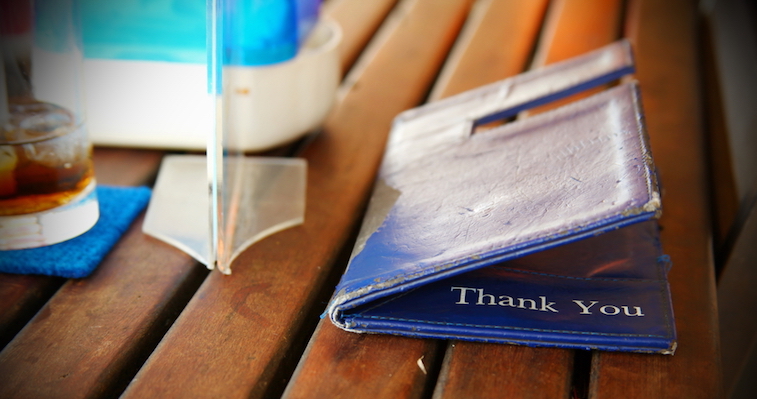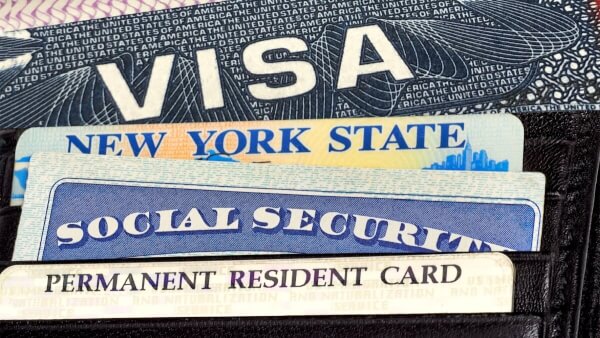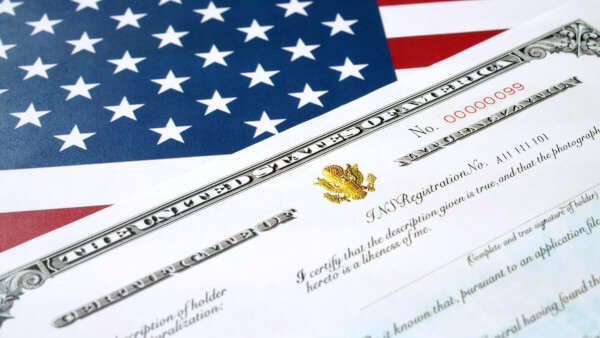Transferring your international driver's license to the US: step-by-step
Your full guide to updating your foreign driver's license to the US.

Even though the Dutch are famously well-educated in English, there's sometimes a word that pops up in conversation that simply doesn't seem to make sense.
So, to help those who've crossed the Atlantic to live in the U.S., we’ve called around and pulled together 9 of the most confusing words and phrases that might come up in everyday conversation.

“Going dutch” is a popular expression in English that's used to describe when each person participating in an activity pays for their own portion.
You're most likely to hear it when figuring out who will pay the check at a restaurant. It can even become a source of contention when on a first date.
In America, “passing the buck” means evading or shifting one’s responsibility by passing it on to someone else.

A couch potato is someone who spends a lot of time relaxing on the couch and watching TV instead of doing more useful things, including exercise. The expressions is also often used as a synonym for lazy.
In America, if you “razz” someone, it generally means that you’re teasing them playfully. In sports, however, it can also mean heckling.
If you want to bail on something, you're simply going cancel your plans to go out. The term comes from when someone has to post bail to get out of jail.
When your new American friend says that they “need to stop by the drug store quickly” before meeting you for dinner, they don’t mean that they plan on purchasing party favors for a big night out.
Instead, drug stores in the U.S. are just shops where people go to purchase cold medicine, band aids, vitamins, etc.
Giving someone “the cold shoulder” in America has little to do with turning down the actual temperature.
Instead, it means that you’re being particularly unfriendly or ignoring someone on purpose.
“Has Sarah spoken to you since you bailed last minute on her birthday party?”
“No, she's giving me the cold shoulder.”

PDA stands for public displays of affection, and it's most likely being said in a humorous tone.
The U.S. is pretty liberal when it comes to physical contact in public. But it can depend a little on who you ask and in what context as to whether it's being said as a positive or negative.

If an American tells you that they don’t mind you being late because they took the opportunity to “shoot the breeze” with their neighbor, they don’t mean that they went to the shooting range in the meantime.
Instead, “shoot the breeze” here simply means that they were killing time with idle chit-chat.
The term comes from the olden times, where cowboys in the Wild West had nothing better to do than shoot at random targets for no particular reason.
Your bank might say "free" or offer a "fixed fee" to send money home but they hit with you as much as 5%.
Save up to 8x when sending money overseas. Unlike banks, with Wise you don't pay a markup in the exchange rate when your money is converted into another currency. And you'll save even more by avoiding the international Swift fees and the intermediary banks, when you send and receive money abroad.
Check here how much you'd save with Wise.
It's cheap, fast, and you know exactly how much you pay and how much reaches the destination. With no unpleasant surprises.
*Please see terms of use and product availability for your region or visit Wise fees and pricing for the most up to date pricing and fee information.
This publication is provided for general information purposes and does not constitute legal, tax or other professional advice from Wise Payments Limited or its subsidiaries and its affiliates, and it is not intended as a substitute for obtaining advice from a financial advisor or any other professional.
We make no representations, warranties or guarantees, whether expressed or implied, that the content in the publication is accurate, complete or up to date.

Your full guide to updating your foreign driver's license to the US.

Whatever your reason is for moving to the US, this guide aims to help you figure out the most important costs you'll face when you live there.

Find all you need to know about getting a personal loan for H-1B visa holders in this guide.

Everything you need to know about the US certificate of naturalization.

The US welcomes large numbers of new arrivals every year — and getting a great job to both gain experience and set down roots is a core part of the American...

Find everything you need to know about the US citizenship test, including the USCIS questions and answers.